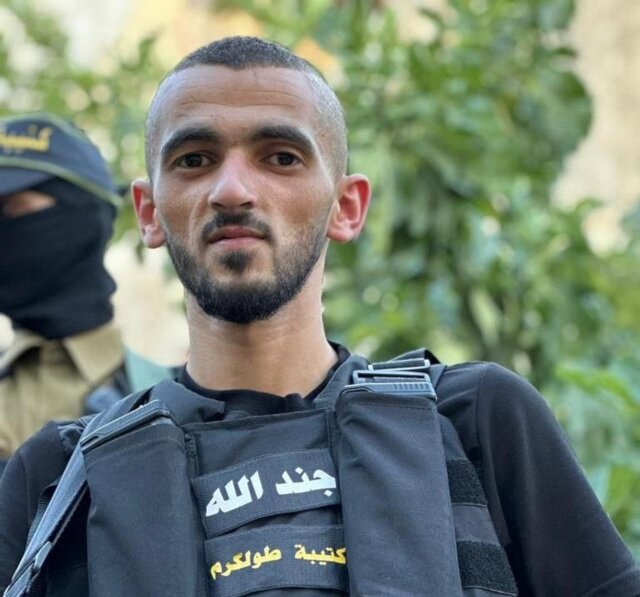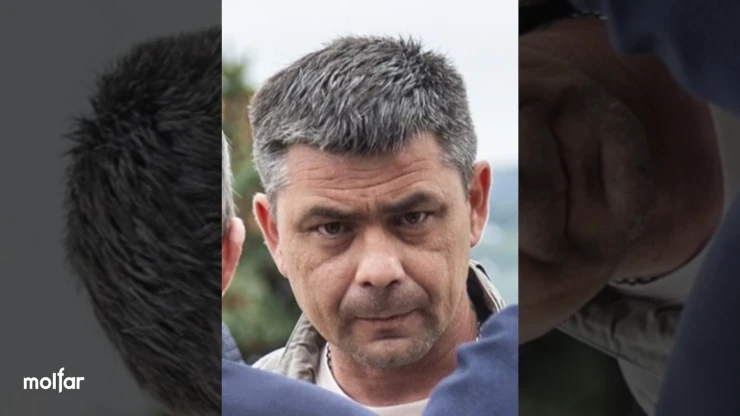EGYPT’S MOST WANTED CAPTURED: Will Hisham Ashmawy’s Arrest Deal Blow to Militant Groups in Egypt?
EGYPT’S MOST WANTED CAPTURED: Will Hisham Ashmawy’s Arrest Deal Blow to Militant Groups in Egypt?
Egyptian authorities have finally heaved a sigh of relief after Libyan security forces arrested the most wanted Egyptian militant, Hisham Ali Ashmawy Mosaad Ibrahim (a.k.a. Abu Omar al-Muhajir al-Masri) “alive” on October 8 in the city of Derna, located 165 miles west of Libya’s border with Egypt.
Spokesperson for the Libyan National Army (LNA), Ahmed Mismari, announced the long-sought capture on his official Facebook page, confirming that Ashmawy was arrested at Derna’s al-Maghar neighborhood “and was wearing an explosive vest but was unable to detonate it.” The LNA said Ashmawy was captured alongside the “wife and children of a second senior alleged militant, Mohamed Rifae Soroor” (also known as Omar Rifae Soroor), who was killed earlier this year (Al-Dostour, October 8).
Following the arrest, Egyptian President Abul Fatah el-Sisi said at an armed forces seminar on October 11 that, “We have the terrorist Hisham Ashmawy and the hero Ahmad al-Manssy (Referring to al-Manssy who was killed in a terrorist operation in Sinai on July 7, 2017), they were both humans, officers, and were serving in the same unit,” adding: “The difference, however, is that the first got confused and therefore is a traitor, and the latter was committed to the genuine understanding of safeguarding the Egyptian state. Egyptians clap for him (al-Manssy), but (Ashmawy) is wanted for a trial” (YouTube, October 11).
Arresting Ashmawy is likely to deal a major blow to the weakening militant movement across the country. The Egyptian security forces have recently intensified counter-terrorism operations and frequently arrested dozens of militants. Additionally, the ongoing defeat of Islamic State (IS) in Syria and Iraq over the past two years has also undermined the militant ecosystem in Egypt and forced Ashmawy to flee the country to Libya.
As Libyan military forces complete their investigations, it is highly likely that Ashmawy will be extradited to Egypt. Ashmawy is wanted there for his role in 17 deadly attacks that caused heavy losses within Egyptian security ranks in Sinai, Cairo, and al-Farfara oasis in Egypt (Al-Youm Al-Sabae, October 8).
In the days following his arrest, Libyan interrogators have extracted information from Ashmawy, including information about the infrastructure of al-Murabitun, some communication channels with al-Qaeda, and the fact that Ashmawy was coordinating with the notorious jihadist, Mokhtar Bel-mokhtar. The two were planning to set up training camps for militants in Libya. Meanwhile, Ashmawy confirmed the death of al-Qaeda militants Sufian Bin Qemo and Omar Refai Soror, saying they were buried in Derna. Ashmawy also said Abu Beraa al-Libi is leading scores of cells and fighting Libyan forces to control the downtown of Derna, where 50 wounded militants are being treated at an old building (Al-Youm, Al-Sabae, October 10).
As a leader of an al-Qaeda-inspired group, al-Murabitun, Ashmawy has been convicted to death in absentia for carrying out deadly attacks across Egypt. These include the assassination of Prosecutor General Hisham Barakat in July 2015 and a raid on Egyptian armed forces in February 2015, which claimed the lives of 29 troops. The most recent attack took place in October 2017, when al-Murabitun militants ambushed military forces in Giza province, killing 19 soldiers (Al-Watan, October 8; Militant Leadership Monitor, October 2015). Ashmawy has been sentenced to death by both the Egyptian state and by IS leader Abu Bakr al-Baghdadi, who issued the same sentence in August 2015 after the backlash against his once-proclaimed Caliphate.
After his capture, Ashmawy appeared in a video with blood gushing from his face. When asked about his whereabouts, he said his name was “Hisham Ashmawy” and that he was “an Egyptian military officer with a rank of major, serving in Egypt’s thunderbolt forces” (Cairo 24, October 9).
Ashmawy, born in 1978, joined the Egyptian military in 1996. In 2003, he married Nesreen Sayed Ali, a teaching assistant in Ain Shams University in Cairo. In 2011, Ashmawy was dismissed from the military after a court convicted him of inciting violence against the military. Signs of radicalization were apparent in his behavior, which were probably aggravated by his father’s death in 2005. According to Al-Arabiya’s Death Making documentary, Ashmawy was considered a highly-trained officer who had trained with the U.S. Navy SEALs. The training qualified him to serve in the hotspot of the Sinai Peninsula, where deadly bombings had taken place in Dahab and Sharm el-Sheikh in 2005 and 2006 (El-Watan, October 23, 2018). [1]
After his dismissal in 2011, Ashmawy began forming a militant group composed of four other dismissed officers, leaving the country in April 2013 for Turkey. After crossing the border to Syria, he received training in manufacturing explosive charges. (El-Watan, October 20, 2017).
A year after his dismissal, Ashmawy joined Ansar Bayt al-Maqdis (ABM). However, he defected from the Sinai-based militant group in 2014, after the group pledged allegiance to IS in November of that year. Adhering to al-Qaeda leader Ayman al-Zawahiri, he formed a separate group in Egypt called al-Murabitun as a counterbalance to IS.
Ashmawy has recruited military officers to join his militant groups, including Walid Badr. In 2013, Badr, alongside Ashmawy, attempted to assassinate Mohammad Ibrahim—then Egypt’s interior minister. At this time, ABM, considering itself a part of al-Qaeda, followed up with a video honoring the would-be assassin, Walid Badr. Like Ashmawy, Badr fought in Syria before returning to Egypt. There, authorities claimed Badr was trained by and fought for al-Nusrah Front, al-Qaeda’s branch in Syria until July 2016.
Capturing Ashmawy alive kills two birds with one stone. On the one hand, Egyptian and Libyan authorities are likely to identify cells Ashmawy formed over the past five years. With this intelligence, the security apparatus will be able to avert future operations. On the other hand, the information he holds will lead the security apparatus to launch further preemptive crackdowns on the leftovers of his group or other Islamist militants across the Western desert with Libya, where Ashmawy used to carry out attacks.
Thanks to Ashmawy’s knowledge of the porous Egyptian-Libyan borders, he was able to smuggle weapons, and recruit and train militants. Now under arrest, the Libyan and eventually the Egyptian interrogators are likely to uncover evidence leading to the dismantling of further terrorist cells across the countries.
Notes
[1] https://english.alarabiya.net/en/webtv/programs/death-making/2015/10/04/Hisham-al-Ashmawy-military-man-turned-jihadist.html

